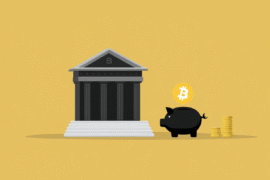This article may contain references to products or services from one or more of our advertisers or partners. We may receive compensation when you click on links to those products or services. Nonetheless, our opinions are our own.
The information presented in this article is accurate to the best of our knowledge at the time of publication. However, information is subject to change, and no guarantees are made about the continued accuracy or completeness of this content after its publication date.
You may have used Signal, an app that claims to offer robust encryption and secure messaging. Its reputation as a champion of privacy has drawn millions of users seeking refuge from prying eyes. However, while Signal certainly takes important strides toward safeguarding your conversations, it’s essential to recognize that privacy is not an absolute. In navigating the nuances of what makes a submission truly private, you may discover that even the best tools have limitations. We’ll explore the intricacies of Signal’s privacy features, potential vulnerabilities, and why understanding these nuances is crucial for anyone invested in protecting their digital footprint.
- Understanding Signal’s Privacy Promises
- Examining the Limits of End-to-End Encryption
- How Your Digital Footprint Can Still Be Tracked
- Tips for Enhancing Your Communication Security
- What You Should Know About Metadata and Privacy
- Navigating the Balance Between Convenience and Security
- Frequently Asked Questions
- Recommended Reads
Understanding Signal’s Privacy Promises
When you dive into Signal’s privacy promises, it’s essential to understand what they really entail. You might appreciate that Signal uses end-to-end encryption, which ensures that only you and the person you’re communicating with can access the content of your messages. However, it’s important to remember that while Signal takes significant measures to protect your data, it still collects some user metadata. This can include:
Your phone number: Used to register and identify your account.
Last seen timestamps: Reflect the last time you were active on the app, visible to your contacts.
Service logs: Brief records of successful connections and dialogue times, which could potentially be accessed under legal obligations.
Additionally, it’s vital to recognize that the effectiveness of Signal’s privacy features can be undermined if others in your communication circle are using less secure platforms. Even with its robust infrastructure, the security of your conversations heavily depends on the choices of everyone involved. Think of it this way: while Signal is an excellent tool for maintaining private conversations, your overall digital privacy hinges on a broader awareness of your online interactions.
Examining the Limits of End-to-End Encryption
When diving into end-to-end encryption, it’s essential to recognize that while apps like Signal tout their privacy features, the reality is a nuanced landscape. You may feel secure knowing that your messages are encrypted, but consider the potential gaps in this security model. Even with top-notch encryption, there are aspects of your usage that could expose you to scrutiny.
Metadata Exposure: Every time you send a message, certain details like the time it was sent, the sender, and the recipient are still visible. This metadata can be harvested by third parties, providing insights into your habits and relationships.
Device Vulnerabilities: End-to-end encryption doesn’t shield you from vulnerabilities at the device level. If an unauthorized individual gains access to your phone or computer, you cannot guarantee the privacy of your data.
Human Error: Even the most secure platforms can be undermined by human mistakes—accidentally sharing sensitive details, using weak passwords, or failing to update apps regularly can all lead to breaches.
| Privacy Aspect | Encryption Status |
|---|---|
| Message Content | Encrypted |
| Message Metadata | Not Encrypted |
| Device Security | Depends on User |
In the digital age, it’s crucial to layer your privacy measures and not solely rely on one aspect. Strengthening your overall security posture will mitigate risks and lead to a safer communication experience. Remember, taking control of your privacy isn’t just about using the right apps—it’s about being vigilant and informed.
How Your Digital Footprint Can Still Be Tracked
Your choice of messaging apps can feel like a fortress of privacy, but the reality is that your digital footprint can still be traced in various ways. While using platforms like Signal aims to keep your conversations secure through end-to-end encryption, several factors can compromise your anonymity:
Metadata Tracking: Even if your messages are encrypted, metadata such as the time, duration, and participants of your conversations can still be accessed, creating a trail that reveals your habits and patterns.
Device Information: Your phone’s unique identifiers, like the IMEI or IP address, can be logged, allowing someone to trace your device back to you.
Third-Party Apps: If you’re using Signal alongside other apps, be mindful that they could be exchanging data, leaving breadcrumbs that can link back to your identity.
Moreover, consider how your online interactions extend beyond conversations. You may unknowingly share personal information on social media or through your browsing history. It’s essential to stay vigilant and regularly audit your online presence.
| Tracking Method | Description |
|---|---|
| Cookies | Small files stored on your device that track browsing habits. |
| Location Services | Apps that access your GPS can log your physical movements. |
| Browser Fingerprinting | Techniques to identify your device based on unique configurations. |
Understanding the nuances of your digital footprint is crucial. While Signal does enhance privacy in messaging, always be aware that your online activity might still be subject to scrutiny. Your actions, combined with the available technology, may result in a larger profile than you intend to create.
Voted "Best Overall Budgeting App" by Forbes and WSJ
Monarch Money helps you budget, track spending, set goals, and plan your financial future—all in one app.
Get 50% OFF your first year with code MONARCHVIP
Tips for Enhancing Your Communication Security
When it comes to maintaining the privacy of your communication, it’s vital to adopt a proactive approach in your digital habits. Here are some essential tips to enhance your communication security:
Use Strong Passwords: Combine letters, numbers, and symbols to create complex passwords. Regularly update them and avoid using the same password across multiple platforms.
Enable Two-Factor Authentication: Adding an extra layer of security by using two-factor authentication can protect your accounts, making it substantially harder for unauthorized users to gain access.
Regularly Update Your Apps: Developers frequently release updates to patch security vulnerabilities. Keeping your applications up to date is a straightforward yet effective way to safeguard your information.
Be Wary of Public Wi-Fi: Avoid using unsecured or public Wi-Fi for private conversations, as these networks can easily be intercepted by malicious actors.
Encrypt Your Messages: Use apps that offer end-to-end encryption. This ensures that your communication is only readable by you and the intended recipient.
Additionally, understanding the potential limitations of the apps you use can help you make informed choices. For instance, consider the table below, which outlines some popular messaging apps and their privacy features:
| App | End-to-End Encryption | Data Collection |
|---|---|---|
| Signal | Yes | Minimal |
| Yes | Moderate | |
| Telegram | No (default) | High |
By implementing these strategies and staying aware of the features and limitations of your communication tools, you take control of your digital privacy, ensuring that your conversations remain as secure as possible.
What You Should Know About Metadata and Privacy
When it comes to messaging apps like Signal, you might feel a sense of security knowing your chats are encrypted. However, it’s essential to remember that encryption isn’t the only thing to consider regarding privacy. Metadata—the data about your data—can reveal a lot about your communication patterns. For example, while the content of your messages may be secure, Signal collects certain metadata, such as:
Who you communicate with
When you communicate
How often you communicate
This information can provide insights that may be just as sensitive as the message content itself. Even though Signal aims to minimize data collection, the mere existence of this metadata can potentially be accessed by authorities if required. You should also keep in mind that although Signal does not store message contents, the metadata could still be used to paint a picture of your social interactions and network, affecting your overall privacy.
| Aspect | Signal | Other Messaging Apps |
|---|---|---|
| Message Encryption | End-to-End Encrypted | May Vary |
| Metadata Collection | Limited | Extensive |
| User Data Storage | Minimal | Often Significant |
To enhance your privacy, consider your usage patterns and the potential implications of metadata collection. Understanding these nuances can empower you to take actionable steps toward safeguarding your privacy in an increasingly connected world.
When it comes to messaging apps, you’re often faced with the dilemma of choosing between ease of use and the security of your conversations. While Signal champions its robust encryption and privacy features, it’s essential to recognize that no platform is infallible. The ease with which you can send messages or share media might inadvertently compromise your security if you’re not vigilant. As a notable example, the app’s reliance on your phone number for user identification can expose you to risks, especially if you ever switch devices or lose your phone. Here are some things to keep in mind:
Messaging Behavior: Even encrypted messages can be susceptible to interception if either party’s device is compromised.
Backups: Your chat backups may not be as secure as you’d think, so understanding your backup settings is crucial.
Metadata Exposure: While the content of your messages is encrypted, metadata such as who you’re talking to and when can still be tracked.
To better illustrate the balance between convenience and security, consider this table comparing various messaging apps based on user-friendliness and security features:
| App Name | User-Friendliness | Security Features |
|---|---|---|
| Signal | High | End-to-end encryption, disappearing messages |
| Very High | End-to-end encryption, two-factor authentication | |
| Telegram | High | Secret chats with end-to-end encryption (optional) |
Ultimately, embracing a messaging tool like Signal while remaining cognizant of its limitations is part of navigating the digital landscape today. Make informed choices that align with your communication style and security needs, and always stay updated on best practices to enhance your privacy.
Frequently Asked Questions
What does it mean to say Signal is private?
Signal is frequently touted as a secure messaging app, as it uses end-to-end encryption, meaning that only the sender and recipient can read the messages. This encryption protects conversations from being intercepted by third parties, including Signal itself.
Yes. While Signal provides a high level of security for messages, there are still privacy concerns. For example, Signal collects some metadata, such as the date and time messages are sent and the phone numbers involved, which could potentially reveal patterns of communication.
What kind of data does Signal store?
Signal does not store message contents, but it does retain some basic information, such as the user’s phone number, the last date a connection was made, and the account’s registration date. This information can be used to establish basic user activity.
Because Signal encrypts its messages and does not store the content, it cannot provide any message content to authorities. However, the metadata that it does collect could potentially be accessible if required by law enforcement under certain circumstances.
How does Signal compare to other messaging apps in terms of privacy?
While Signal is one of the more secure apps available, others, like WhatsApp, also employ end-to-end encryption but may collect more user data and share it with parent companies. Each messaging app has different policies regarding data collection and privacy, making it essential to understand what each does with user information.
Should I use Signal if I want maximum privacy?
If maximum privacy is your goal, Signal is certainly one of the best options available, but users should still be aware of its limitations. Using it in conjunction with other privacy practices—such as being cautious about what information is shared—can further enhance privacy.

Reviewed and edited by Albert Fang.
See a typo or want to suggest an edit/revision to the content? Use the contact us form to provide feedback.
At FangWallet, we value editorial integrity and open collaboration in curating quality content for readers to enjoy. Much appreciated for the assist.
Did you like our article and find it insightful? We encourage sharing the article link with family and friends to benefit as well - better yet, sharing on social media. Thank you for the support! 🍉
Article Title: Signal is Private, Sure, but Not That Private
https://fangwallet.com/2025/08/05/signal-is-private-sure-but-not-that-private/The FangWallet Promise
FangWallet is an editorially independent resource - founded on breaking down challenging financial concepts for anyone to understand since 2014. While we adhere to editorial integrity, note that this post may contain references to products from our partners.
The FangWallet promise is always to have your best interest in mind and be transparent and honest about the financial picture.
Become an Insider

Subscribe to get a free daily budget planner printable to help get your money on track!
Make passive money the right way. No spam.
Editorial Disclaimer: The editorial content on this page is not provided by any of the companies mentioned. The opinions expressed here are the author's alone.
The content of this website is for informational purposes only and does not represent investment advice, or an offer or solicitation to buy or sell any security, investment, or product. Investors are encouraged to do their own due diligence, and, if necessary, consult professional advising before making any investment decisions. Investing involves a high degree of risk, and financial losses may occur including the potential loss of principal.
Source Citation References:
+ Inspo
There are no additional citations or references to note for this article at this time.












































